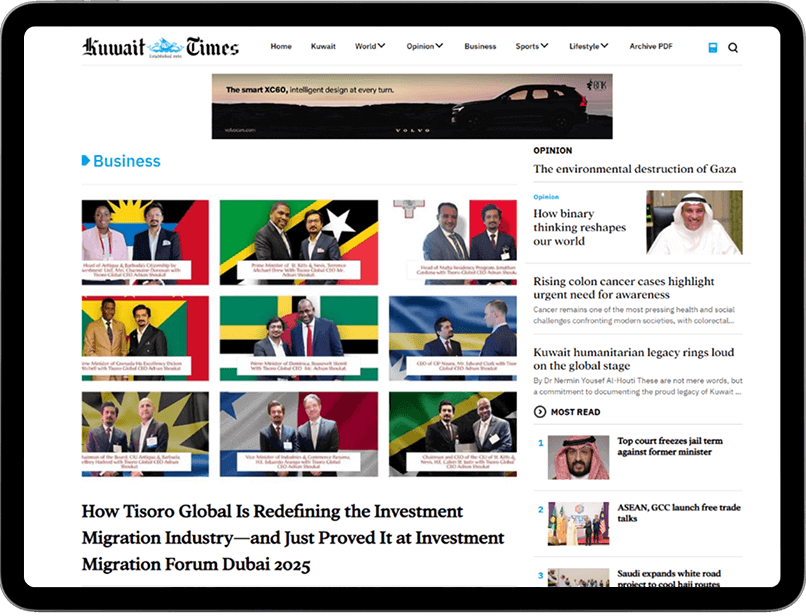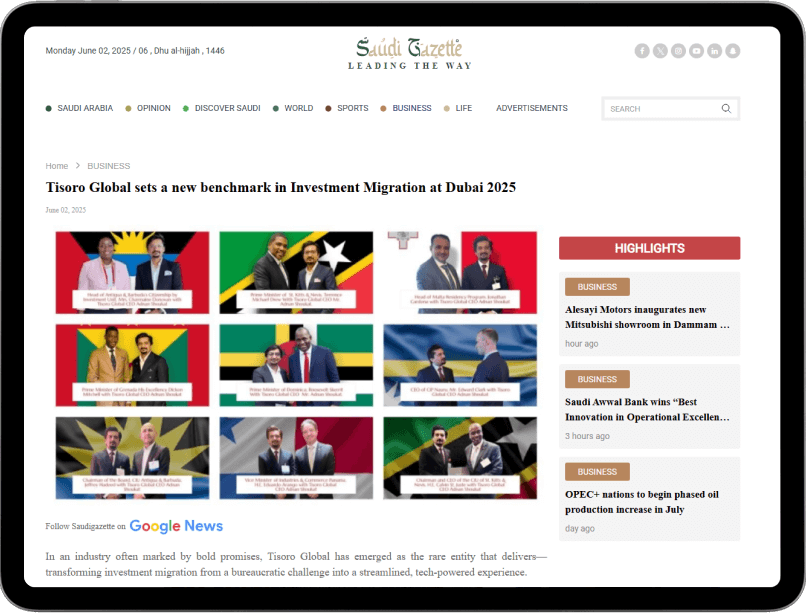By Colin Bishop
Investment migration is a booming industry. More investors around the world are embracing Citizenship by Investment (CBI) as a route to greater mobility, choice and security for themselves and their families. They want to be “global citizens.”
Investment migration programs, which are offered by more than 80 countries, comprise both CBI and Residence by Investment (RBI) programs, which enable individuals and their families to gain citizenship or residence in exchange for investment.
What is CBI?
Citizenship by Investment essentially means acquiring a second citizenship and passport by making investments in the host country's economy. These programs grant citizenship at a faster pace than traditional immigration routes, and the application-to-completion process can be as short as 3-4 months for many programs. The benefits of CBI are numerous and can be life-changing. As a CBI thought leader, I would like to outline five of the key advantages:
Global Mobility
Purchasing a second passport can open up a world of opportunity when it comes to visa-free travel—especially as several CBI nations allow dual citizenship. A Grenadian passport, for example, comes with visa-free (or visa-on-arrival) travel to 148 countries, including the UK and the Schengen area, and holders are also eligible to apply for a U.S. E-2 visa.
Business Opportunities
As a CBI investor, you become a citizen of your host country and thus gain access to local business opportunities. Furthermore, investment portfolios tend to be regionally concentrated, exposing them to the economic fluctuations of specific parts of the world—thus, a second passport can be a highly valuable tool for asset diversification and portfolio protection.
Tax Management
The advantages of dual citizenship extend to tax optimization, with some CBI countries exclusively taxing income earned within their borders and exempting capital gains. This unique benefit empowers investors to manage their wealth with greater efficiency,
Family
Most CBI programs include family members—providing investors with additional choice over how and where to build the best future for their children. Moreover, investing in a second citizenship unlocks doors to some of the world's leading schools, enabling applicants and their children to benefit from domestic tuition fees.
Security And Peace of Mind
In times of unrest in one's home country, a second passport from a stable and peaceful nation can be more than a travel document—it is a lifeline.
Which countries have CBI programs?
St. Kitts and Nevis introduced the first official Citizenship by Investment program in 1984, followed by several other Caribbean nations—Antigua and Barbuda; Grenada; Dominica; and St. Lucia. Outside the Caribbean, CBI destinations include: Malta, Turkey, Montenegro and Vanuatu among many others.
How much does it cost?
The minimum contribution for many CBI programs is around USD $200,000, but there is a wide range. Antigua and Barbuda offers a CBI route with a minimum contribution of USD $100,000, while the recently-announced El Salvador program has a minimum price tag of USD $1 million. Each country outlines distinct requirements for CBI applicants, but being able to demonstrate the legal source of investment funds and having a clean criminal record are always necessary.
Where does the investment go?
Each country with a CBI program decides on its own criteria and routes to investment—often via real estate and/or donation to particular government-backed funds or projects.
Grenada, for example, offers an investment route via the National Transformation Fund, which finances projects in social development, housing and infrastructural development. The country also offers an investment pathway via CBI-approved real estate projects, which include InterContinental Grenada, Hartman University Town and Resort and Grenada National Resort.
Starting Out
Investors seeking citizenship through investment should meticulously research the specific requirements of their chosen country's program. Understand the investment thresholds, qualifying criteria and processing times to ensure alignment with financial goals. Examine eligibility criteria, such as minimum investment amounts and permissible investment types, for a clear understanding of the program's prerequisites.
Additionally, assess the political and economic stability of the potential host country. A stable political environment is crucial for long-term residency and business activities. Evaluate economic indicators, such as GDP growth and employment rates and consider factors like healthcare and education quality to align the chosen country with lifestyle preferences.
If needed, seeking guidance from legal and financial professionals with expertise in CBI programs can provide valuable insights throughout the decision-making process, ensuring well-informed choices that meet investors' financial objectives and their personal goals.
Conclusion
CBI programs are set to become yet more attractive over the year ahead—expect to hear a lot more about people becoming global citizens in 2024.
Read the Full Article on Forbes































